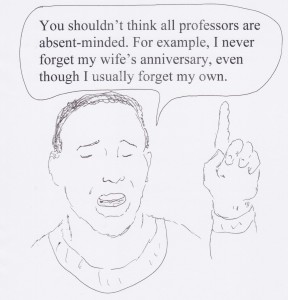Ancient architecture helps us understanding the real message of the Tabernacle in the Bible (Exodus 25). I address the details somewhat in this 5-6 minute video:
Moral neighbors or material prosperity?—Genesis 13:10-13
Twice the patriarchs let someone else choose the land they wanted, and twice God kept the chosen land for the descendants to whom he had promised it. The less clear example is when Esau, who settled part of the land before Jacob did, chooses the hill country of Edom (32:3; 36:8), thereby leaving the rest of the land to Jacob. The clearer example, though, is when Abram invites Lot to choose the part of the land he wants (13:8-9), and Lot chooses the well-watered, fertile plain near Sodom (13:10-13). This land was obviously good for grazing his flocks and herds, but it did have a drawback: Sodom’s residents were very wicked in God’s sight (13:13).
Sodom’s fertility made it like “the garden of the Lord” (13:10)—that is, like the place from which Adam and Eve had been expelled because of their sin. Sin, however, invites judgment, so Sodom’s prosperity would not continue any more than that of Adam and Eve had. Genesis also compares the fertility of this land with the Nile valley of Egypt (13:10). This comparison would send a strong warning to Israelites interested in turning back to their garlic, leeks and onions in Egypt (Num 11:5). Material prosperity is not the only matter to consider when choosing where to move.
Sodom would be destroyed, and Lot’s wife, too attached to Sodom to leave it behind, would perish with it (19:26; cf. Luke 17:31-32). Lot’s daughters, surrounded by the morality of Sodom, would be preserved for his sake (19:12, 16) yet would act immorally. They would shame him after their survival (19:31-34) much as one of Noah’s sons shamed him after that family’s survival (9:22-24).
In the new covenant, God often sends us to places to be a transforming influence for good. All other things being equal, however, Proverbs speaks wisely: “It’s better to have just a little, while fearing the Lord, than to have abundant treasure and experience tumult” (Prov 15:16; the term translated “tumult” is nearly always associated in the Hebrew Bible with God’s judgment).
Continuity between the Old Testament and the New Testament
Craig’s 8-minute video on the continuity between the OT and the NT:
This study continues the hermeneutical questions raised in previous videos on OT laws in their ancient Near Eastern context:
And how to apply OT laws today:
Are we Pharisees?–Matthew 23
There is a reason that the denunciation of religious leaders at Jesus’s first coming appears so soon before Jesus’s warnings for religious leaders to be ready for him at his second coming. 1-minute video:
This is a clip excerpted from a free series on Matthew’s Gospel (face-to-face in class is best, but for people who can’t do that!) – watch it here
The professor’s anniversary (cartoon)
Understanding and applying OT laws today
This 9-minute video looks at how we should apply Old Testament laws today.
It continues a discussion from the earlier video about OT laws in their ancient Near Eastern context:
How I love your law: OT laws in context
12-minute video on explaining background for the Old Testament laws
Bible background matters
2-minute video on why background matters (this isn’t to give details on background–for that see other posts).
Jesus favors the lowly, not the proud–Mark 12.35-44
In this passage Jesus challenges the scribes (Bible teachers) and defends widows. This all fits Jesus’s own role as Lord.
Asbury welcomed me to give a homily today, and since I already had the outline in front of me, I wanted to make it available to anyone else who would be interested (if you have 10 minutes and 44 seconds free … otherwise, I have posted some shorter videos also 🙂 ).


